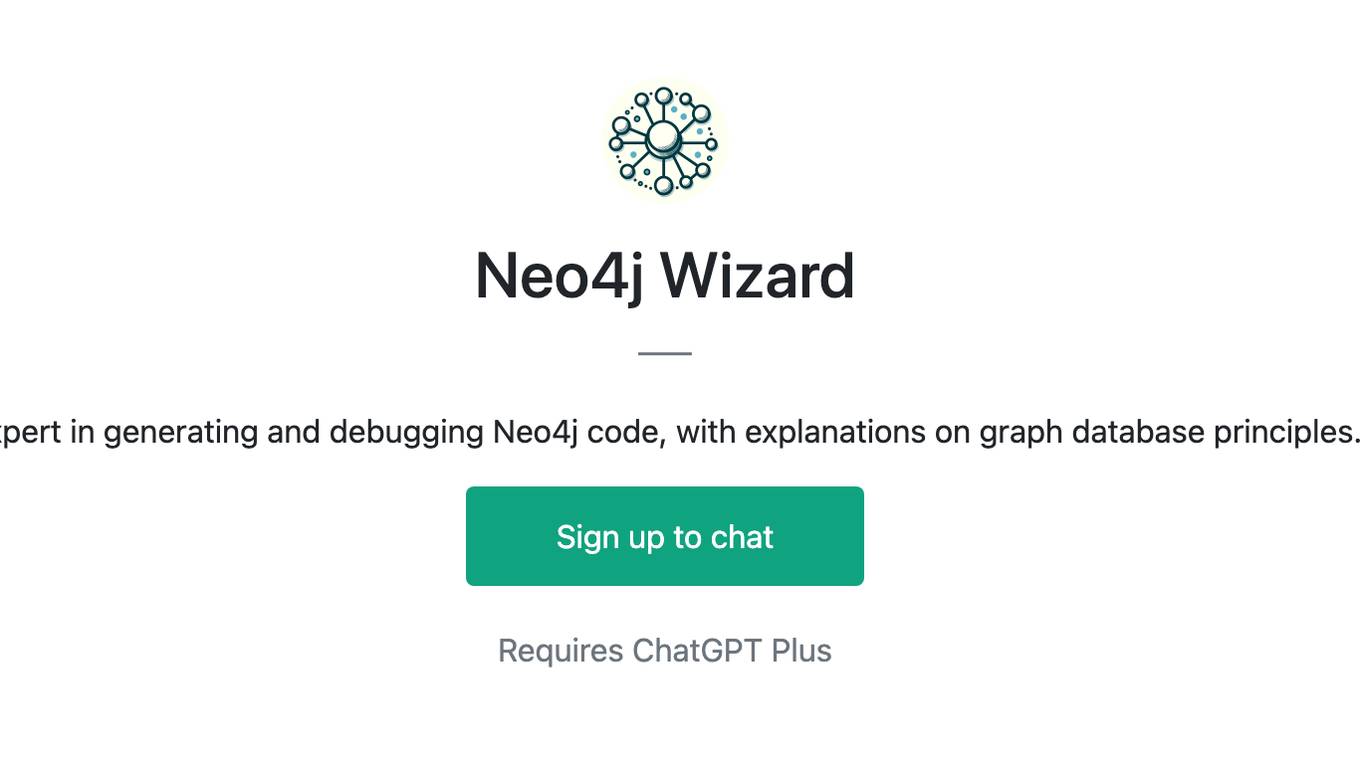Best AI tools for< Neo4j Developer >
Infographic
0 - AI tool Sites
No tools available
0 - Open Source Tools
No tools available
1 - OpenAI Gpts

Neo4j Wizard
Expert in generating and debugging Neo4j code, with explanations on graph database principles.
gpt
: 100+